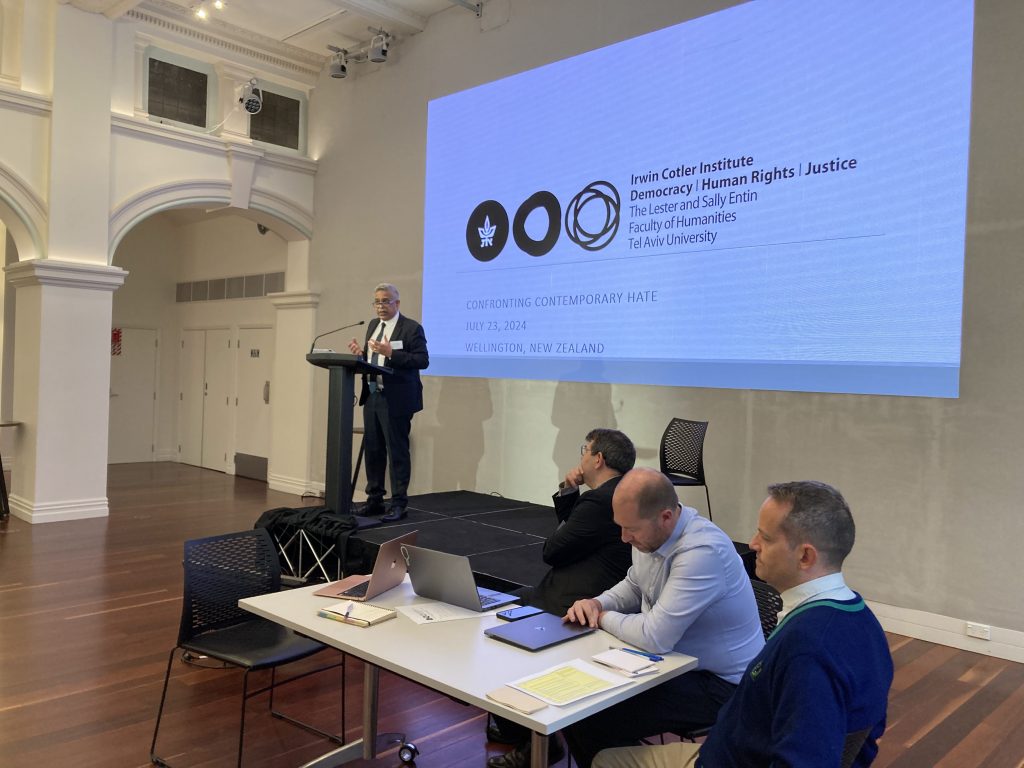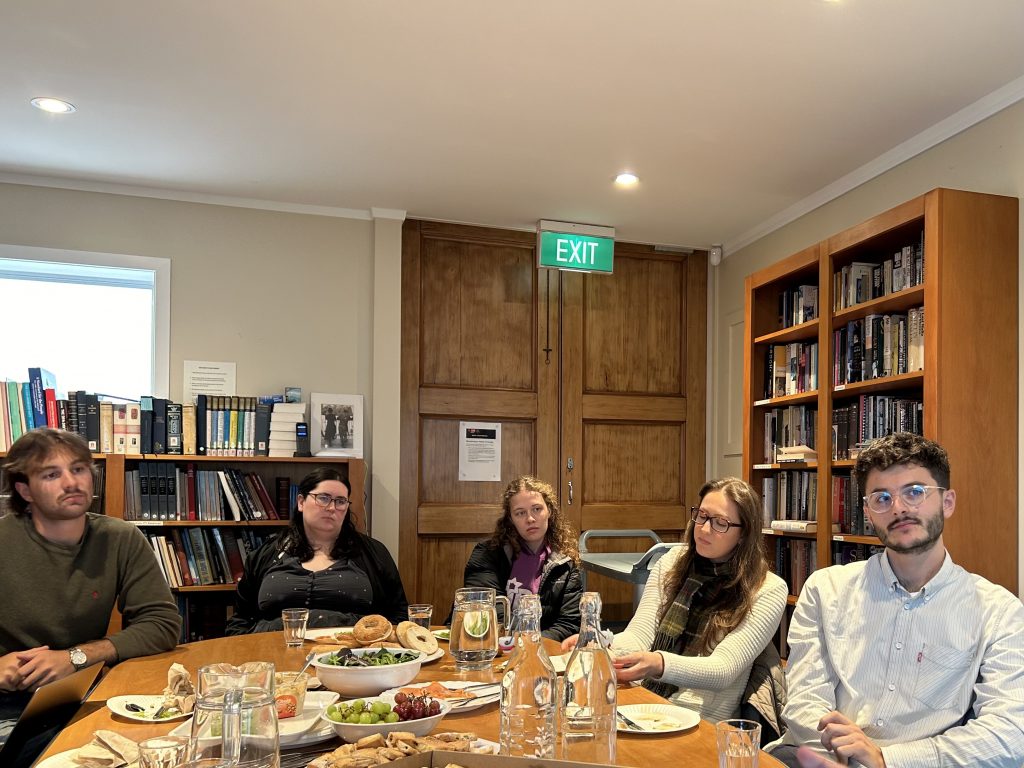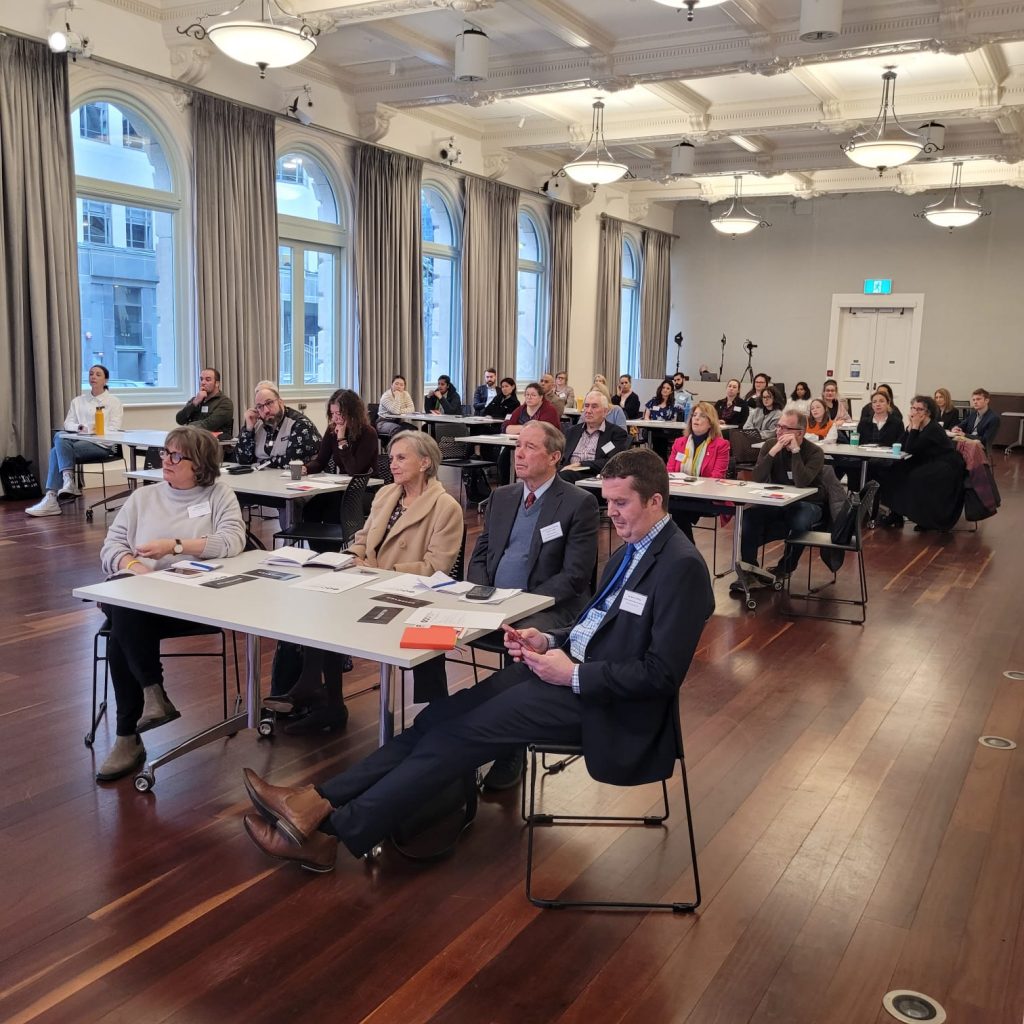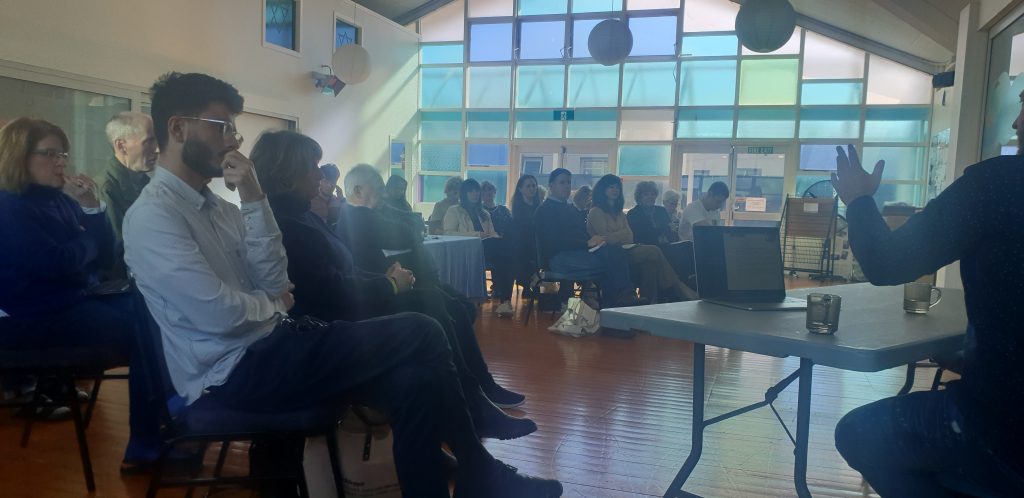New Zealand Seminars

In July 2024, The Irwin Cotler Institute led a ten-day series of seminars and public lectures with senior officials as well as with members of the Jewish communities in Wellington and Auckland, New Zealand. Since October 7, New Zealand has witnessed a strong public anti-Israel sentiment, and a rise in the number of antisemitic incidents.
Senior members of the Jewish communities hailed the lectures and seminars as exceptionally empowering and informative, and noted that the tour raised awareness among government agencies about the reality of antisemitism and helped establish new channels for communication and cooperation with the government.
The tour was initiated by Markus McCraith, Irwin Cotler fellow in the 2023-24 cohort.
The tour began on July 23, 2024. The Irwin Cotler Institute, in partnership with the New Zealand Ministry for Ethnic Communities, the Astor Foundation, the Holocaust Centre of New Zealand, and the New Zealand Jewish Council, delivered a seminar addressing the topic of ‘Confronting Contemporary Hate’. The event was held at the esteemed Public Trust Hall in Wellington, New Zealand, with over 70 people in attendance. Participants included officials from the Ministry of Education, the Ministry of Foreign Affairs, the New Zealand Police, the Department of the Prime Minister and Cabinet, Victoria University of Wellington, the Human Rights Commission, the New Zealand Law Commission, the Jewish community, the City Council, and more. Additionally, the US Ambassador to New Zealand, Tom Udall, and his wife, Jill Cooper, were in attendance.
The event began with remarks from event host Dr. Giacomo Lichtner, (Associate Professor of History at Victoria University of Wellington and Deputy Chair of the Holocaust Centre of New Zealand), who introduced the audience to the mission of the Irwin Cotler Institute in advancing human rights, justice, and democracy, and in combating racism and antisemitism. Dr. Lichtner hailed the contribution of Prof. Irwin Cotler to the causes of justice and equality and the fight against antisemitism and racism at large across the world.
His opening words were followed by remarks from Mervin Singham, the Chief Executive of the Ministry for Ethnic Communities, who spoke passionately about the positive contribution of Jews to New Zealand society but also the worrying trends of rising antisemitism, particularly after October 7, emphasizing the need to combat it through genuine human connection. He encouraged Jews in New Zealand to express their identity boldly.
Prof. Uriya Shavit, Head of the Institute, delivered the event’s first lecture, ‘Hate: Why is it Spreading in Our World?’, reflecting on the causes and manifestations of contemporary hate, and what can be done about it. This was followed by Dr. Carl Yonker’s lecture, ‘Online Hatred and the Means to Combat It’, where he delved into the factors contributing to the rise of online hate. Following a morning tea and mix and mingle, Dr. Yonker, the Academic Director of the Institute, delivered his second lecture, ‘Contemporary Antisemitism in Western Societies’, in which he explained what contemporary antisemitism looks like and where it is coming from, with an emphasis on the explosion of antisemitism around the world, including in New Zealand, after October 7. Practical steps were given on how to combat it. The event ended with a Q&A session, in which much engaging discussion took place between the guests and Prof. Shavit and Dr. Yonker.
Other seminars and public lectures followed through the next eight days. The Holocaust Center of
New Zealand hosted the Institute for a seminar for 23 teachers and educators across the country on online hate and addressing antisemitism in schools. After speaking on these topics, Dr. Carl Yonker fielded questions from the participants and heard about their experiences and challenges as educators in New Zealand in addressing antisemitism in their classrooms and in their schools following October 7.
The Holocaust Centre of New Zealand in Wellington kindly provided their showroom for a public lecture by Prof. Uriya Shavit, organized in partnership with the New Zealand Jewish Council and the Astor Foundation. Attendees were largely from the Wellington Jewish community. Prof. Shavit spoke about the importance of reading the Hamas Charter to understand first-hand the nature of the war Israel is fighting, and explained why it is essential for the war to end with the total elimination of Hamas. He also spoke about the challenges of defining Jewish identity in the 21st century. The discussion and debates that followed demonstrated the diversity within the small Wellington community.
In Auckland, the Irwin Cotler Institute delivered a seminar and hosted a discussion on the topic of ‘Challenges of Jewish Identity in the 21st Century’ at the Beth Shalom Synagogue. Deborah Hart, chair of the Holocaust Centre of New Zealand, opened the event and moderated throughout. The New Zealand Jewish Council and the Astor Foundation took part in the organization of the event. Forty-five people from the Auckland Jewish community came in person, with several dozen attending online.
Prof. Shavit delivered the event’s first lecture, on ‘Israel, the Middle East, and Jewish Communities after October 7’, while Dr. Carl Yonker delivered the second lecture on ‘Online Hate: Trends and Counter-Measures’. This was followed by a very engaging Q&A and discussion, where some in the audience members had questions and comments related to Jewish identity, Israel, combating antisemitism, and more.
In the same venue, Prof. Shavit, Dr. Yonker, and New Zealand Fellow Markus McCraith held a roundtable discussion with members of the New Zealand branch of the Australasian Union for Jewish Students. Participants shared their experiences as New Zealand Jews generally, and on university campuses specifically, with a keen interest to hear from the Cotler Institute ways in which they can combat antisemitism they face and take part in refuting false accusations and distorted historical analogies made against Israel. The young students were very eager, and the conversation was engaging and fruitful.
The New Zealand tour also included a number of informal meetings with public officials, which, as is often the case, were as important as the formal ones.



